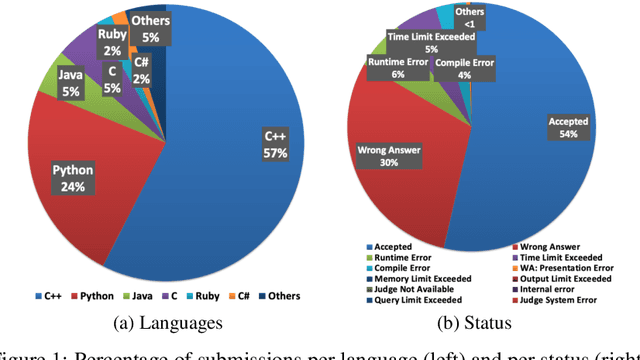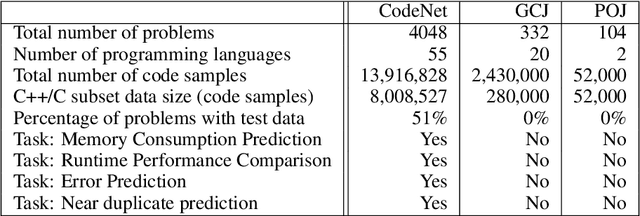Project CodeNet: A Large-Scale AI for Code Dataset for Learning a Diversity of Coding Tasks
Paper and Code
May 25, 2021



Advancements in deep learning and machine learning algorithms have enabled breakthrough progress in computer vision, speech recognition, natural language processing and beyond. In addition, over the last several decades, software has been built into the fabric of every aspect of our society. Together, these two trends have generated new interest in the fast-emerging research area of AI for Code. As software development becomes ubiquitous across all industries and code infrastructure of enterprise legacy applications ages, it is more critical than ever to increase software development productivity and modernize legacy applications. Over the last decade, datasets like ImageNet, with its large scale and diversity, have played a pivotal role in algorithmic advancements from computer vision to language and speech understanding. In this paper, we present Project CodeNet, a first-of-its-kind, very large scale, diverse, and high-quality dataset to accelerate the algorithmic advancements in AI for Code. It consists of 14M code samples and about 500M lines of code in 55 different programming languages. Project CodeNet is not only unique in its scale, but also in the diversity of coding tasks it can help benchmark: from code similarity and classification for advances in code recommendation algorithms, and code translation between a large variety programming languages, to advances in code performance (both runtime, and memory) improvement techniques. CodeNet also provides sample input and output test sets for over 7M code samples, which can be critical for determining code equivalence in different languages. As a usability feature, we provide several preprocessing tools in Project CodeNet to transform source codes into representations that can be readily used as inputs into machine learning models.
 Add to Chrome
Add to Chrome Add to Firefox
Add to Firefox Add to Edge
Add to Edge